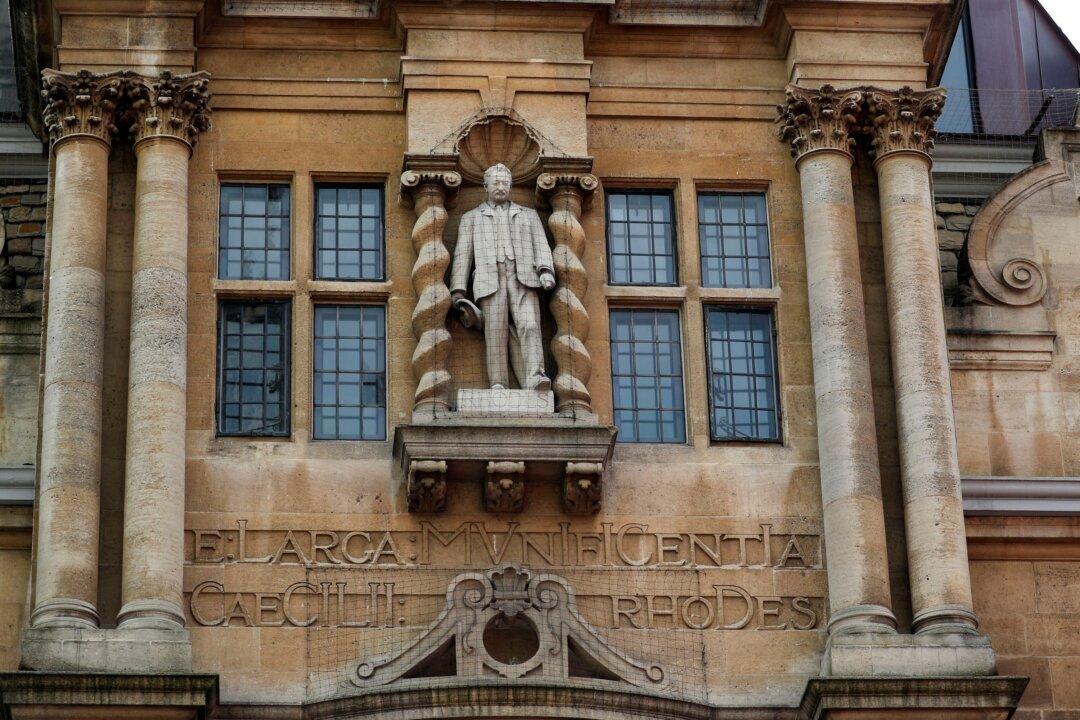The governing body of an Oxford University college will not take down the controversial statue of Cecil Rhodes at this stage due to “regulatory and financial challenges” presented by its removal.
Oriel College’s decision comes after a long-running campaign demanding the removal of the British imperialist’s monument gained renewed attention amid the Black Lives Matter movement.




